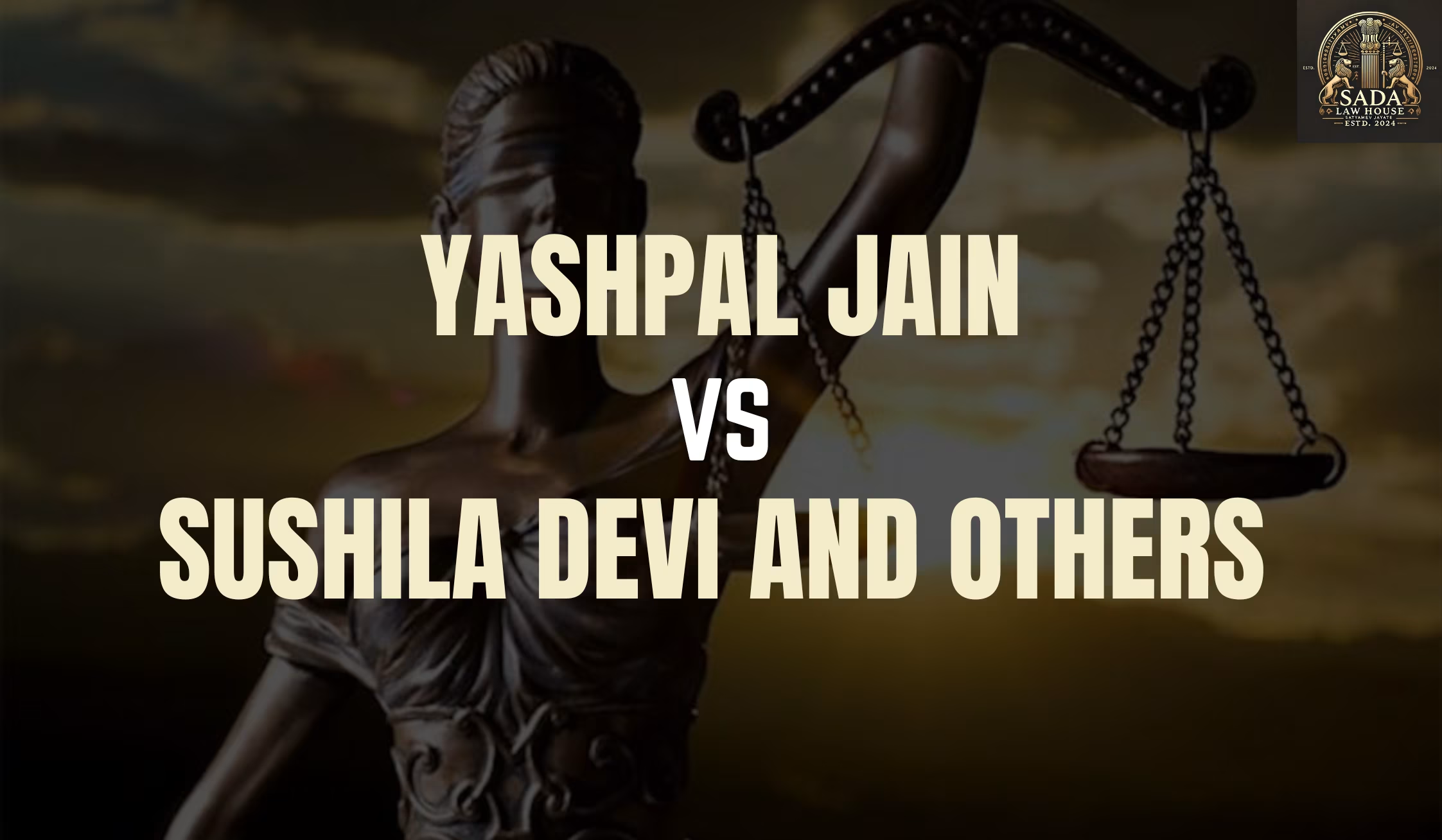Supreme Court Issues 12 Key Directions for Speedy Trial of Civil Cases
- REHA BHARGAV
- 08 June 2025

In a landmark ruling, the Supreme Court of India issued 12 critical directions to combat civil litigation delays, while addressing legal heirship disputes in the case of Yashpal Jain v. Sushila Devi.
Introduction
The Supreme Court’s decision in Yashpal Jain v. Sushila Devi and Others addresses the chronic issue of delay in Indian civil litigation. Originating in 1982, the case centered around a legal heirship dispute following the death of the plaintiff, Urmila Devi, and highlighted the need for procedural efficiency and the right to speedy justice under Article 21 of the Constitution of India.
Facts of the Case
In 1982, Urmila Devi filed a civil suit to void specific sale deeds and reclaim property. After her death in 2007, Yashpal Jain claimed succession rights as her adopted son, while Manoj Kumar Jain claimed inheritance through a registered will from 1999.
The trial court initially substituted Manoj as the legal representative. However, this was contested by Yashpal, leading to a reversal by the District Judge, only to be overturned again by the High Court. The matter ultimately reached the Supreme Court of India.
Issue Before the Court
Who qualifies as the rightful legal representative under Order XXII of the Civil Procedure Code?
How can procedural reforms ensure a timely civil trial and uphold the constitutional right to speedy justice?
Petitioner’s Arguments (Yashpal Jain)
Adopted Son Status: Asserted his right as the adopted son under the Hindu Adoption and Maintenance Act.
Questioning the Will: Challenged the legitimacy of the 1999 will, arguing that a legatee cannot substitute a deceased plaintiff unless the will is probated.
Trial Court Error: Accused the lower court of premature substitution without proper estate representation.
Litigation Delay: Highlighted 16 years of delay caused by the substitution dispute.
Substantive Justice: Urged the Court to prioritize fairness and efficient trial proceedings.
Respondents’ Arguments (Manoj Kumar Jain & Others)
Will-Based Claim: Claimed rightful substitution as per a registered will executed by Urmila Devi.
Denial of Adoption: Dismissed the adoption claim, citing insufficient proof.
Support for Trial Court’s Order: Defended initial substitution as legally sound.
High Court Ruling Validity: Cited the High Court’s restoration of his substitution as affirmation.
Proper Procedure Followed: Asserted that legal norms were duly observed by his side.
Supreme Court Judgment Highlights
Yashpal Jain Restored: The Supreme Court overturned the High Court’s decision and reinstated Yashpal Jain as Urmila Devi’s legal representative.
Substitution Rule Clarified: Under Order XXII CPC, a legatee whose claim is disputed cannot be treated as a legal representative unless the will is proven.
Severe Criticism of Delay: The Court denounced the 41-year case pendency and emphasized judicial failure to ensure timely justice.
12 Procedural Directives Issued:
Time limits for written statements
Faster framing of issues
Promotion of Alternate Dispute Resolution (ADR)
Day-to-day trials
Active case management by judges
Strict compliance with Order V Rule 1 CPC
Curbing unnecessary adjournments
Time-bound disposal of applications
Mandating witness availability
Ensuring effective pre-trial scheduling
Regular review of trial progress
Prioritization of long-pending cases
Conclusion
The Supreme Court’s judgment in Yashpal Jain v. Sushila Devi not only settled the dispute over rightful legal representation but also marked a turning point in Indian civil procedure reform. By laying down actionable guidelines and emphasizing the fundamental right to speedy justice, the Court signaled an urgent call for judicial efficiency and accountability.
This landmark ruling strengthens procedural discipline and enhances faith in the Indian legal system. It stands as a model precedent for future civil litigation across the country.
Case Laws






